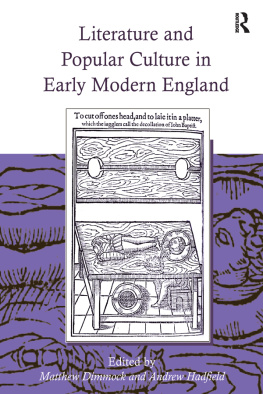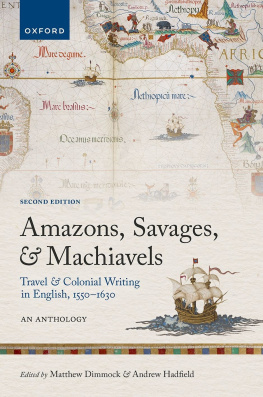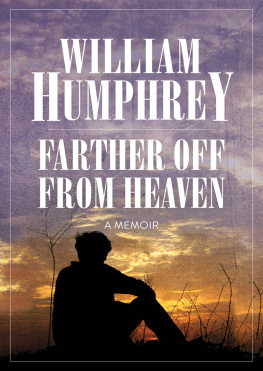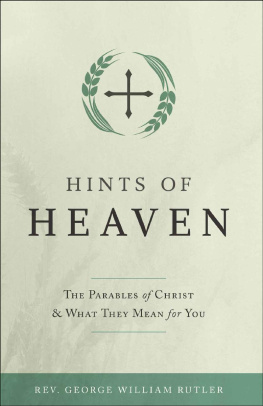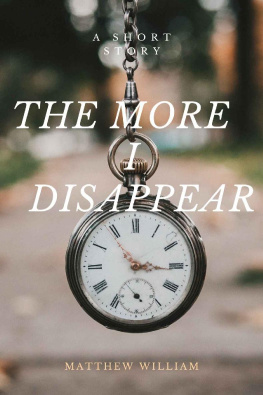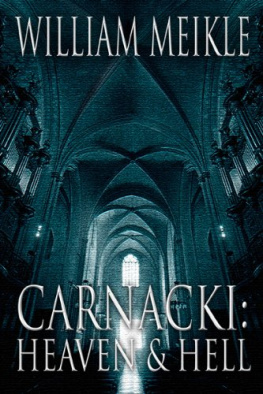First published 2006 by Ashgate Publishing
Published 2016 by Routledge
2 Park Square, Milton Park, Abingdon, Oxon OX14 4RN
711 Third Avenue, New York, NY 10017, USA
Routledge is an imprint of the Taylor & Francis Group, an informa business
Copyright 2006 Matthew Dimmock
Matthew Dimmock has asserted his moral right under the Copyright, Designs and Patents Act, 1988, to be identified as the editor of this work.
All rights reserved. No part of this book may be reprinted or reproduced or utilised in any form or by any electronic, mechanical, or other means, now known or hereafter invented, including photocopying and recording, or in any information storage or retrieval system, without permission in writing from the publishers.
Notice:
Product or corporate names may be trademarks or registered trademarks, and are used only for identification and explanation without intent to infringe.
British Library Cataloguing in Publication Data
Percy, William, 15751648
William Percys Mahomet and his heaven : a critical edition
1. Muhammad, Prophet, d. 632 Drama 2. Muhammad, Prophet, d. 632 In literature 3. Percy, William, 15751648. Mahomet and his heaven
I. Title II. Mahomet and his heaven
822.3
Library of Congress Cataloging-in-Publication Data
Percy, William, 15751648.
[Mahomet and his heaven]
William Percys Mahomet and his heaven : a critical edition / edited by Matthew Dimmock.
p. cm.
Includes bibliographical references and index.
ISBN 0-7546-5406-0 (alk. paper)
1. Muhammad, Prophet, d. 632Drama. 2. ProphetsDrama. 3. MuslimsDrama. I. Dimmock, Matthew. II. Title.
PR2739.P2M34 2006
822.3dc22
2005024709
ISBN 9780754654063 (hbk)
A considerable number of people have lent their time and expertise to this project. Many thanks firstly to the Duke of Northumberland for his permission to reproduce the play, and thanks to Lord Egremont for permission to see a number of texts from his private library at Petworth. My gratitude to staff at both Alnwick Castle and at the West Sussex Record Office (at the latter particularly Alison McCann) for their patient assistance and generosity. Thanks also to staff at the University of Sussex library, at the British Library, at the University of London Library and at the Shakespeare Institute, Stratford.
I never expected to have the opportunity to hear this play professionally read, yet thanks to the enthusiasm and expertise of the people at Globe Education, particularly Patrick Spottiswoode, Deborah Callan and Farah Karim-Cooper, it was put on at short notice and with great success. My deepest thanks to all involved in the occasion, from the actors (who did a remarkable job), to the participants. Martin Wiggins has been generous in his advice and support, as have Mark Nicholls and Gordon Batho. The chance to expound on the play at a Leeds University research seminar was a welcome and constructive experience my thanks to all the participants, but especially to Paul Hammond, Martin Butler and to Sam Wood. Gerald MacLean and Donna Landry have, as always, been a remarkable mine of information and a great support to this project, as have Nabil Matar, Daniel Vitkus, Lisa Jardine, Stephan Schmuck, Lucy Munro, Mark Hutchings and Matthew Birchwood. Apologies if my enquiries have, at times, seemed endless and rather bizarre.
I owe a particular debt of gratitude to Andrew Hadfield, who has dealt with enquiries, lent books, listened to barely formed ideas and read drafts without complaint. Similarly my thanks to Jerry Brotton for advice, inspiration and encouragement. More generally, Id like to express my gratitude to colleagues and students at the University of Sussex for their generosity and ideas, particularly Margaret Healy, Brian Cummings, Lindsay Smith, Keston Sutherland and Ellie Rycroft, and to Tom Gray, Emily Yates and all at Ashgate. A grant from the Department of English research fund made a great deal of difference to the project, and for help with this my gratitude to Mick OMalley and Steve Burman. Finally thanks to my family, particularly my father for his Latin expertise, and the family Grove; thanks to Tom Eggleston for taking on some major challenges with me over the past year, and to Mark Midgley and Colin Hall for putting up with me and putting me up. This edition is dedicated, however, to Lucy Grove, who I hope will now understand what I got so excited about.
William Percys Mahomet and His Heaven is an enigma. Its origins are uncertain, its textual history confused, its status as legitimate playtext doubted, its literary merit consistently denied.1 Written by an apparently dissolute minor noble on the outer fringes of Oxford and London literary culture, it has proved easy to dismiss as an interesting but anomalous curiosity. As a consequence, the play remains largely unknown to all but a handful of specialists. While I hope that this edition, alongside other recent and forthcoming work, may go some way to rescue Percy and his text from an undeserved obscurity, this is not its primary purpose. From my first encounter with a microfilm copy at the Shakespeare Institute in Stratford, I have been acutely conscious of the plays importance for any consideration of early English mythologies of Islam and the Prophet Muhammad, particularly as they were dramatised in the playhouse. In the wake of a recent re-evaluation of Christian/Muslim interaction that has questioned traditional assumptions about this crucial historical period, Mahomet and His Heaven can no longer be ignored.2
For it is a remarkable play, even when measured against the vast and varied corpus of early modern responses to Islam and the Ottoman turke. It is the only play extant that flaunts its Qurnic source, for while numerous dramatic references to the Qurn exist, few other playwrights took the controversial step of having it opened on stage or demonstrating knowledge of its contents.3 For most the Alcaron exists as a symbol of Muslim faith, a prop to assist conversion, a perversion to be purged by fire; for Percy it is a subject of study, a silk-bound and bejewelled indicator of status, a means to effect religious reconciliation. Mahomet and His Heaven is also the only early modern play extant to personify Muhammad, a potentially sacrilegious act then as now (although for very different reasons). Robert Greene, in his play Alphonsus of Arragon (158991?) offered a dramatic vision of the Prophet speaking to his idolatrous acolytes through a brazen head that exhaled flakes of fire (IV.i.29), a conscious return to the anti-Muslim polemic of the Middle Ages.4 While inevitably participating in this mythology, formed from centuries of propagandist accretion, Percys Mahomet is the product of a considerably more sophisticated engagement with the available source material and an insight into the rapidly changing circumstances of the early seventeenth century.5
In these terms, Mahomet and His Heaven also emphatically confirms the absence of any single and absolute notion of Islam or the Muslim that defined the views of English or Christian culture as a whole. Early English conceptions of religious difference can only be understood in terms of the ideological fractures prompted by religious reform the process of Reformation that continued throughout the sixteenth and seventeenth centuries.6 A renegotiation of the theological position of the Saracen had played a central role in earlier Christian division, and indeed was similarly pivotal to Martin Luthers understanding of the true believer and his church, and to the debates concerning reform in England between Thomas More and William Tyndale.7 Such perceptions of Islam were augmented by some early travel accounts (such as those of the fictional John Mandeville and Marco Polo), but remained primarily informed by a body of literature produced in the twelfth and thirteenth centuries, most prominently the Cluniac corpus, initiated by Peter of Cluny (known as the Venerable) and incorporating the first translation of the Qurn into Latin, Robert of Kettons




